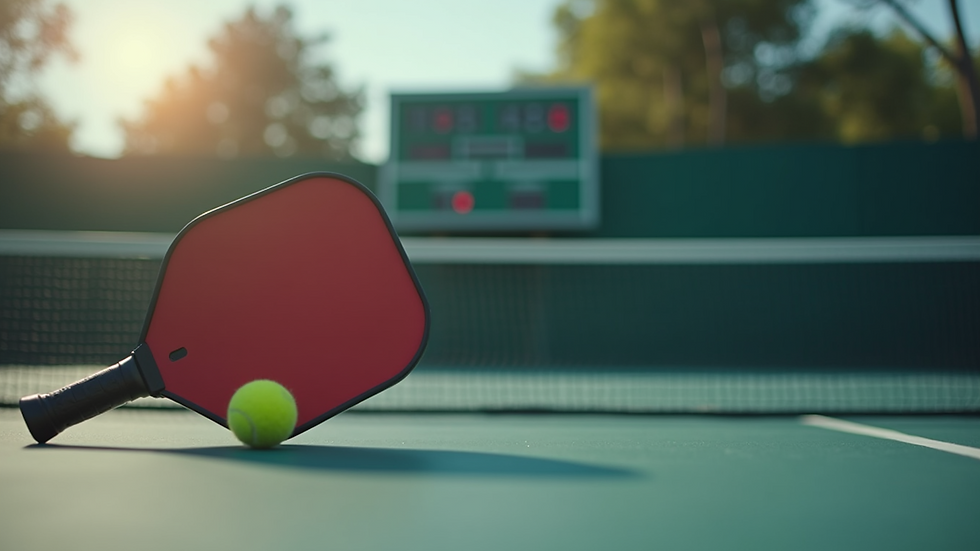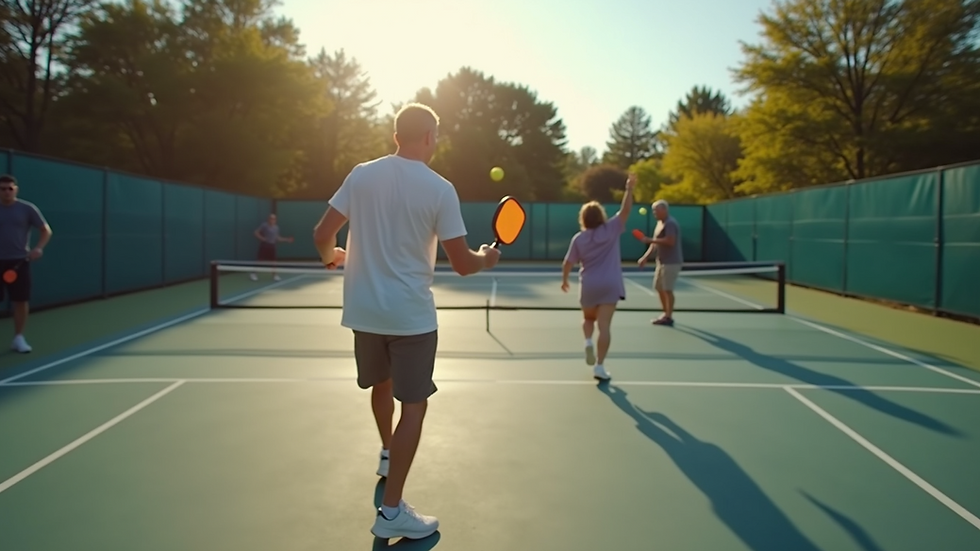How Team Programs Are Changing the Game of Pickleball
- nexuspickleballusa
- Aug 18, 2025
- 4 min read
Pickleball is more than just a game; it’s a rapidly growing community. Team programs are taking the sport by storm, providing players with unique opportunities for development, competition, and camaraderie. This blog post explores the significant impact these team programs have on the pickleball landscape, how they are changing the game, and actionable tips for players and organizers alike.
The Rise of Team Programs in Pickleball
Team programs are emerging in pickleball clubs across the country. They offer players a structured environment to learn, practice, and compete. These initiatives are often organized by local clubs but can also include community programs or recreational leagues.
For example, team programs can take the form of weekly practices, organized tournaments, and social events. This structure not only fosters skill development but also strengthens community ties among players. According to the USA Pickleball Association, participation in organized team play has increased by over 150 percent in the last few years. This surge contributes to the sport’s growth and helps introduce newcomers to pickleball.

Benefits of Team Programs
The advantages of structured team programs in pickleball are manifold. Here are some key benefits:
Skill Development
One of the primary purposes of team programs is to enhance skills. Players receive targeted coaching that addresses their specific weaknesses. Coaches in these programs often have extensive experience and can provide valuable insights.
Players often find that practicing in a team setting helps them improve faster than they would alone. Cooperative drills, like paired practice or team matches, bring out the best in individuals. This allows players to learn from each other while building on their strengths.
Competitive Edge
An organized team creates a competitive environment. Local and regional tournaments provide players the chance to face off against other teams, helping them to gain experience and improve their game. Competition pushes players to elevate their performance, making them more resilient on the court.
Statistics reveal that teams that engage in regular competitions report increased levels of motivation and satisfaction among players. The thrill of competition often inspires players to train harder and stay consistent.

Building Community
Team programs foster a sense of belonging. Players get to know each other, share experiences, and build friendships. This sense of community is especially valuable for new players who may feel intimidated when entering the world of pickleball.
Community-building events are also a hallmark of these programs. Social gatherings, workshops, and volunteer events offer team members opportunities to bond outside the court. The more these players interact, the stronger the community becomes, leading to better support systems for everyone involved.
How to Start a Team Program
If you're interested in launching a team program at your club or community, here are some actionable steps:
Assess Interest
First, gauge interest among players. You can conduct surveys or hold informational meetings to see how many players would like to join a team. Determine their skill levels and what they hope to gain from the program.
Get the Right Coaching Staff
Having a skilled coaching staff is essential. Look for coaches who have experience not just in pickleball, but also in teaching and inspiring players. They can provide the guidance necessary for skill development and motivate teams to perform at their best.
Organize Regular Practices
Schedule regular practices to ensure consistency. These should involve a mix of drills, games, and team-building activities. By maintaining regularity, players are more likely to stay committed and engaged.
Create a Competitive Schedule
Establish a clear schedule for participating in tournaments. Identify local competitions and register your teams. Creating a competitive calendar will help keep players focused and excited about their progress.
Encourage Communication
Foster open lines of communication among team members. This includes sharing progress, scheduling practices, and discussing strategies. You might want to use social media groups or messaging apps for this purpose.
The Future of Team Programs in Pickleball
As pickleball continues to grow, team programs will undoubtedly evolve. More organizations are starting to recognize the value of team play and are investing in enhancing these programs.
In the future, we can expect to see:
Enhanced training resources, including online tutorials and coaching workshops.
More integrated community events that blend different age groups and skill levels.
Potentially a structured league structure at greater levels, similar to other sports.
As it stands, teams are pivotal to the development of players, and more are stepping up to form alliances and partnerships. These collaborations aim to provide a more cohesive support system for players, ensuring that everyone has access to quality coaching, practice facilities, and community engagement. Ideal players will find opportunities through organizations like nexus pickleball.

Final Thoughts
Pickleball is changing at a rapid pace, and team programs play a critical role in this transformation. By fostering skill development, creating a competitive environment, and building community, these programs are enhancing the overall experience for players. Whether you're a seasoned pickleball enthusiast or a newcomer, consider joining or forming a team program. You'll find more than just improvement in skills; you'll discover a rich tapestry of community and friendship.
With the future looking bright for pickleball, staying active in team programs will only make the sport more enjoyable and rewarding.



Comments